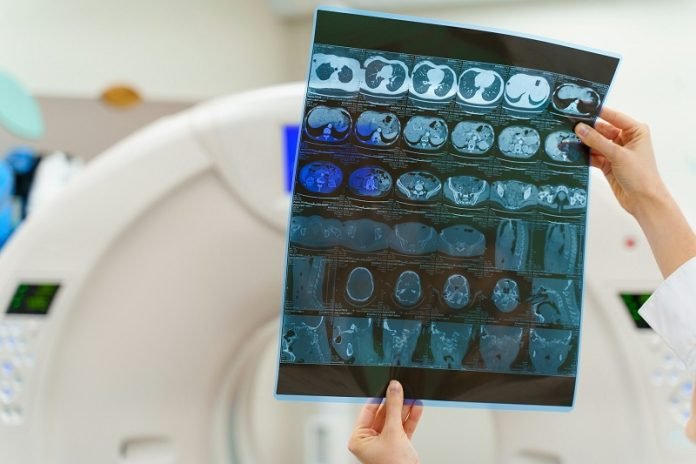
Researchers have made a significant leap in brain injury diagnosis with a novel brain imaging method.
This new technique is especially useful for detecting mild traumatic brain injuries (mTBIs), a type of injury often missed by traditional imaging methods like MRI.
Mild traumatic brain injuries, like concussions, are common but tricky to diagnose. Most MRIs don’t show any structural problems, even though the person might be experiencing real symptoms.
This new method offers a solution by using a clever trick involving the body’s own immune system.
The technique uses gadolinium, which is commonly used as a contrast agent in MRIs. But here’s the twist: the gadolinium is placed into tiny hydrogel-based patches. These patches are then attached to special immune cells called macrophages.
Why macrophages? When there’s inflammation in the brain, as is the case with mTBIs, these cells naturally migrate to the inflamed area.
By tagging these cells with gadolinium, the MRI can now pick up on this inflammation. This means doctors can see and diagnose mTBIs that would otherwise go unnoticed.
This groundbreaking work, detailed in a paper in Science Translational Medicine, was led by Samir Mitragotri, Ph.D. at Harvard University.
Think about how many people get concussions – from sports, accidents, and more. Many of these injuries go undiagnosed because they don’t show up on standard MRIs. Without a proper diagnosis, people might not get the rest or treatment they need.
This can lead to worse problems later on, like chronic brain issues or even diseases like dementia or Parkinson’s. In sports, it’s particularly concerning.
There’s growing awareness of conditions like chronic traumatic encephalopathy (CTE) in athletes who have had repeated head injuries.
The new imaging technique is a game-changer because it targets the inflammation caused by mTBIs. The researchers’ expertise in immune cells allowed them to develop this innovative diagnostic tool.
If you care about brain health, please read studies about how the Mediterranean diet could protect your brain health, and blueberry supplements may prevent cognitive decline.
For more information about brain health, please see recent studies about antioxidants that could help reduce dementia risk, and Coconut oil could help improve cognitive function in Alzheimer’s.
The research findings can be found in Science Translational Medicine.
Copyright © 2024 Knowridge Science Report. All rights reserved.



